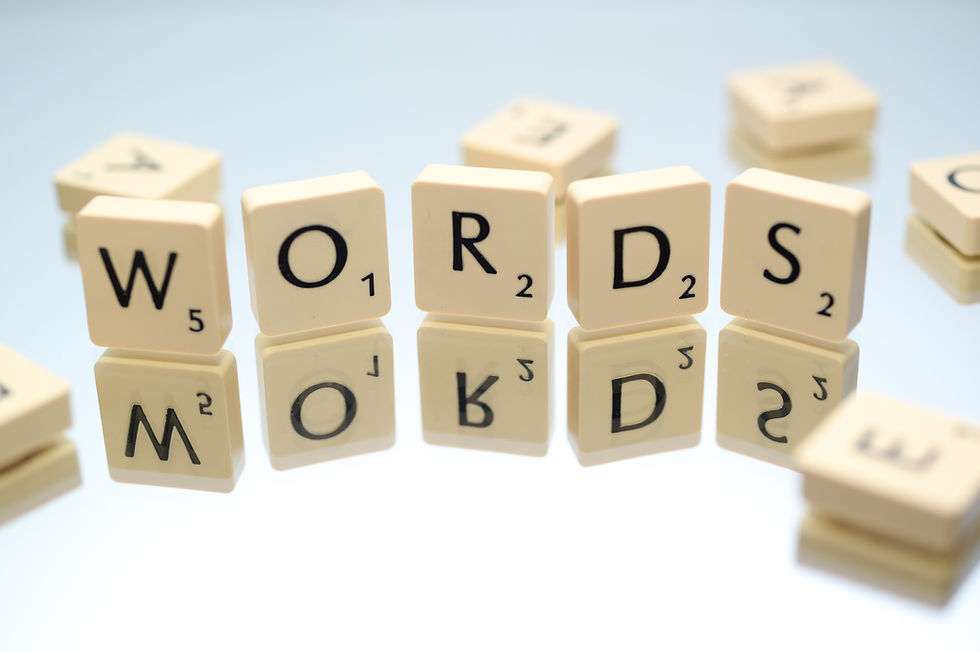Your brain is not designed to make you happy. Say what??
- Amanda Burns

- Aug 16, 2020
- 4 min read

There is a misconception out there that our brain is designed to make us happy. This causes the conclusion to be made that if we are not happy then we must be doing something wrong or we are broken in some way. On the contrary, happiness is not a natural default state. The brain is designed to promote survival not to make us happy all the time.
What the heck? Are we designed to merely survive?
The brain releases “happy” brain chemicals when we find a way to promote survival of our genes. At times yes, we need to survive life experiences but also to thrive in the long run. This is not a conscious thing. Brain chemicals such as dopamine, serotonin, oxytocin, and endorphin are hormone and neurotransmitters that reward us with good feelings when we meet a survival need rather than just flowing for no reason.
Human brains are not the only brains that act this way. Animals also have these same brain chemicals and the have similar brain structures to that of the human brain. However, animal brains are not designed to conceal their impulses with fancy talk. Humans are the ones with a prefrontal cortex which assigned meaning and blame to our experiences. Human brains create beliefs about what should create a happy state and often stand firmly by those beliefs. Isn’t it interesting that beliefs about happiness creations can change depending on who you ask? It can be different for everyone.
So, can we activate our happy brain chemicals?
Yes, we can! When we know what turns on our happy brain chemicals, we can change how our brain responds.
Dopamine rewards you with excitement when you see a way to meet an unmet need (reward chemical) such as completing a task, doing self-care activities, eating food.
Oxytocin rewards you with a nice safe feeling when you find the safety of social connections (love hormone) such as playing with a dog, hugging, or giving a compliment.
Serotonin rewards you with a confident feeling (mood stabilizer) such as meditating, walking in nature, and having sun exposure.
Endorphin creates a euphoria that masks physical pain (pain killer) such as laughter, exercise, essential oils.
Can I turn these chemicals on all the time?
Well that would be nice if we could, but our brain would not be doing its job correctly if it were always turned on. Nothing can be turned on all the time, especially our brain. The happy chemicals turn on in short spurts so we must always do more to get more. If we argue with ourselves and delay things like self-care, then our two brains are not speaking in harmony. We are essentially trying to talk our self out of having a need that is required for the brain to survive.
Can I really stimulate my happy brain chemicals and change my brain?
Have you ever heard of neuroplasticity and neurogenesis? We now understand that are brains are not in a fixed state forever but can change. Neuroplasticity refers to the capacity of the brain to rewire itself, and neurogenesis is the ability of the brain to create new neurons. Both are lifelong possibilities.
We all have billions of neurons that are connected from life experiences and thus they shape our responses. Traumatic experiences build large pathways and result in very big responses. Emotional responses by the brain are highly influential in paving neural pathways and where emotional reactions once helped us survive, may now cause suffering.
I often use the example with my clients that the way we are used to responding, especially negative responses is like driving down a 3-lane freeway with no stop lights or obstructions. Our brain naturally knows to go down this path of least resistance and does so in an automatic way. Building new neural connections is like taking a side road that initially may be covered in dirt and the path is barely visible. But the more we take that new path, repeatedly, over and over, and stop traveling down that huge 3-highway, the new path gets bigger and easier to drive on, and the 3-lane highway now has cracks in the road and dirt and trees obstruct its path.
New pathways in life and particularly in our brain are harder, no doubt. It takes a lot of repetition with new habits and responses but soon the happy chemicals will jump on board much sooner and easier with less effort. Soon that new path will feel normal and natural. Neurogenesis and neuroplasticity are in action.
When do I start?
Right away! Even the smallest shift starts everything in motion. While the new choice may not feel good and natural right away, the changes will already be in motion. It may be hard to resist the old pathways that require less effort, but with repetition it will happen. You may still travel down those old pathways once in awhile, but the pleasure you feel with not be as abundant with that old way as they were before. You can build new ways to activate your happy brain chemicals!
Amanda
Resources:
Habits of a Happy Brain: Retrain Your Brain to Boost Your Serotonin, Dopamine, Oxytocin, & Endorphin Levels by Loretta G Breuning, Ph.D.




Comments